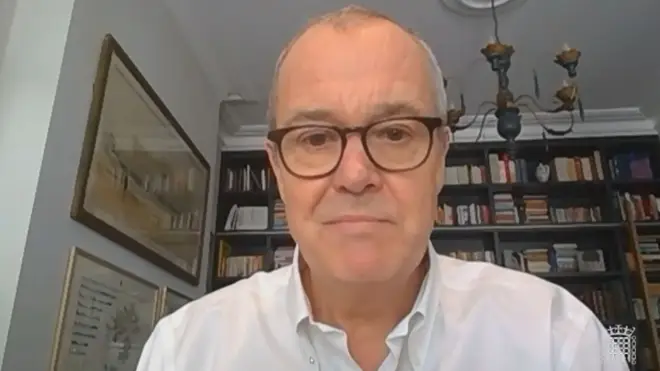
Henry Riley 7pm - 10pm
5 May 2020, 10:41

Recovering from coronavirus might not make you immune
The Government's chief scientist has told MPs the vast majority of people infected with Covid-19 have "some form of antibody response," but warned they may not be immune.
Sir Patrick Vallance, the Government's chief scientific adviser, told the Health and Social Care Committee that while people who have had coronavirus will have some form of antibody response "the degree of immune protection that provides" is not yet known.
He added that "some degree of protection" would be expected but he warned it "almost certainly" will not provide absolute immunity.
Reassuringly he told the committee "some degree of protection" would be provided by the antibody response.
Read more: Downloading coronavirus app will 'save lives and ease lockdown'

He told MPs it was unknown at the moment if someone can still carry the virus and be infectious after having developed antibodies.
Giving a potential timeframe for immunity based on experience from other coronaviruses, he said: "It may last for one, two, three years, but not for many, many years."
Read more: What is the coronavirus lockdown 'roadmap'? How will restrictions be lifted?
Listen & subscribe: Global Player | Apple Podcasts | Google Podcasts | Spotify
Asked about his comments from March on herd immunity, Sir Patrick apologised if he was not clear in his explanation then.
He said: "I should be clear about what I was trying to say, and if I didn't say this clearly enough then I apologise. What I was trying to say was that, in the absence of a therapeutic, the way in which you can stop a community becoming susceptible to this is through immunity and immunity can be obtained by vaccination, or it can be obtained by people who have the infection."
He added: "I think expectation is that antibody responses will correlate with immunity to some degree, maybe very high, may not be so high, and that some degree of protection, whether it's to reduce the severity of the disease, or to reduce the overall effect of the disease, I think, and the ability to catch the disease."
It comes after one of the Government's top medical advisers said officials do not have enough information yet on the issue of immunity.
Deputy chief medical officer for England Dr Jenny Harries said on Saturday: "The WHO (World Health Organisation) position is very similar to the one we would have, which basically says we actually don't have enough information yet to be very clear on the immune status."
She said signs of immunity could vary from patient to patient but doctors would expect people to have some immunity about a week and a half after being ill.

Michael Gove calls 5G coronavirus conspiracy theories ‘dangerous nonsense’
Sir Patrick said the UK is still "quite early" in the epidemic but that doesn't mean "the whole thing's gone away."
He said: "Although most countries are getting on top of the first peak in some ways it doesn't mean the whole thing's gone away."
He was asked if he knew back in March what is known now, whether events such as Cheltenham and the Champions League match would have been allowed to go ahead.
He said: "In terms of what would I do in retrospect, if we knew then what we know now, I think that's something for the future to look at and certainly there will be times when evidence didn't allow decisions to be made that you could make now, and there'll be times at which you look back and say that something might have been done differently, I've got no doubt about that.
"When you look at everything that happened, the speed at which it happened, maybe days either way would have made a difference, but I think it's difficult to look back and say three weeks was an obvious point to do it, I don't think that was clear, I don't think it's clear now."
He said investment in genomics had allowed scientists to conclude that many of the imports of coronavirus to the UK in early March likely came from European countries with outbreaks, rather than China.